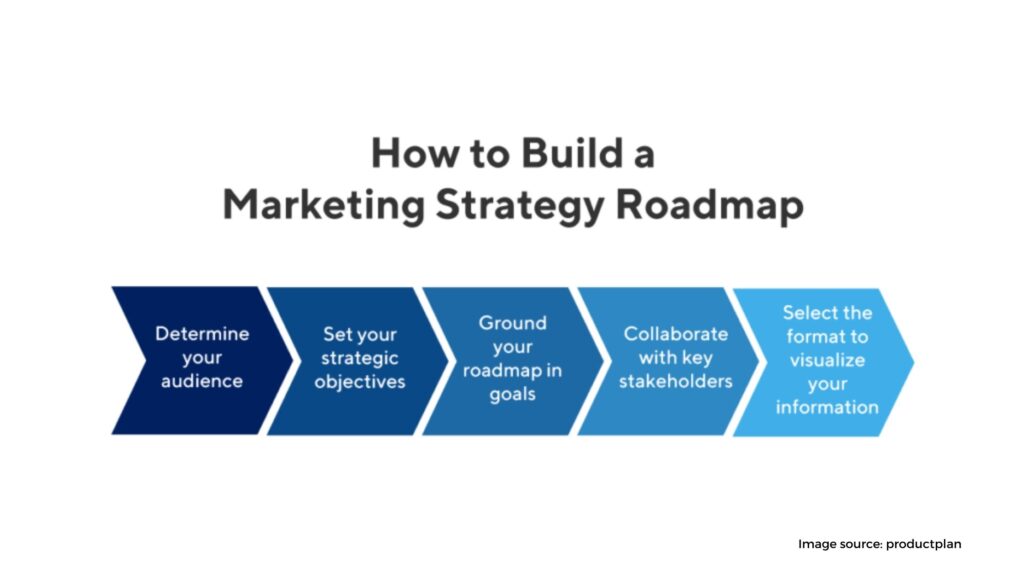Marketing refers to activities undertaken by a firm to promote the sale or purchase of a product or service. Firms usually rely on generating new business to stay healthy. The construction industry, in particular, all have a more challenging time landing qualified new companies when their marketing department doesn’t market themselves effectively. On the other hand, those prepared to fine-tune their messaging and products to cater to a particular market sector do even better. That’s why It’s essential to have clear marketing objectives and marketing aims.
It’s no secret that firms who specialize in a particular area of expertise have tremendous success than those that try to be all things to all customers. For example, according to a study by FMI Corporation, construction firms specializing in serving a particular demographic were favored 2.5 times as frequently as those that did not.
Given that you have an edge in this area, if your company lacks such expertise, it may be time to reconsider whom and how you advertise your services. Diverse marketing strategies like internet marketing, search engine optimization, digital marketing, direct marketing, inbound marketing, outbound marketing, etc. Of course, many businesses retain concerns about narrowing their business focus since they are afraid it will drive away other possibilities. This isn’t the case at all. It’s almost exactly the opposite.
Your company can establish a firm grasp on the market by focusing on one sector—for example, restaurant or property building at the high end, high-end residential construction projects, or sustainable “green” building—and then capitalize on that opportunity.
As a result, you won’t only benefit from reduced competition for bids; you’ll also be seen as a “go-to” expert in that area by future and repeat clients. As a result, your business will grow faster in a field that meets your company’s sales targets and identity. You will also gain brand loyalty.
Finding Your Niche

Make sure the niche your company will target is one in which you’re both comfortable and competent before you start. Then, do your market research: Who is a good collaborator and why? What type of projects does your firm do best, and how much money do they make for you?
These and similar inquiries will provide you a good idea of where you should devote your marketing efforts, allowing you to develop the business most appealing while pruning anything that deviates from your overall objectives.
Having a well-defined ideal prospect profile will save you time and money on your next steps. In other words, consider what the perfect consumer is like, what their specific requirements are, and how your area of expertise would play a part in their search. Nailing down your objectives in terms of desired (and achievable) development will also assist you in deciding the scope of your marketing campaigns.
It is time to get down to business and start doing market research on companies and individuals that fit your profile. You might, for example, want to know who they are, where, when, and how they conduct business, what publications they read, and where they congregate. Of course, this is in addition to gathering statistical data on the overall size and saturation of the marketplace, as well as active rivals and growth prospects.
Customers who fit the bill can provide valuable data on their characteristics that will help you focus on the hot-button concerns of those in your target niche, allowing you to communicate your unique advantages to other prospects who check out. More significantly, this information will assist you in tailoring your services more precisely to the unique demands of the niche.
Identifying Your Customers
The next step, after identifying the ideal prospect, is lead creation. The form and breadth of your lead generating activities will be determined by a variety of factors, including as well as the size and nature of the niche, the scale of your operations, and your intended revenue and growth targets. Naturally, the bigger and more complex these variables are, the more difficult it is to create leads.
However, there are certain constants. You’ll want to discover those prospects who most closely match your ideal profile, identify the key decision-makers you’ll need to contact and collect as much contact and background information as feasible.
If the niche is a large one, you’re likely to be able to find directories, contact lists, and research resources that can assist you in building your prospect database. Even smaller local markets will have several common points of connection; these may also help you figure out where to go.
Regardless of the size or scope, having a clean database of prospects provides you with a guide as you begin to interact with that sector. Remember, though, that contact data is constantly changing. According to statistics, more than 70% of people modify one or more elements on their business cards each year. Therefore, maintaining your database free and correct must be a continuous process.
One of the most significant advantages of focusing on a specific area is that it makes allocating advertising funds much easier and more effective. Rather than throwing the broadest possible net and hoping for the best, you may precisely target your efforts, messaging, and face-time on those prospects who have the greatest potential return over a short period.
Roadmap to Success With A Good Marketing Strategy

Now it’s time to prepare for connecting with these prospects, whether via advertising (print or online), direct mailings, or over the phone. A well-planned combination of all three is ideal. All of the above should ideally cater to the target niche’s specific requirements and interests while also seeking to develop a relationship with them as quickly as possible.
Frequent (but not oppressive) meaningful interaction with the candidates in your database will aid you in arranging face-to-face meetings with decision-makers who make deals happen. As a result, each subsequent contact must build on past communications with a prospect. Nurturing the potential is what this term refers to, and it should be regarded as an ongoing process rather than a single activity.
Information requests generated as a result of ad placement, for example, should lead to further contact with more information. Similarly, connecting your perfect prospects using the initial direct mail campaign should be followed up with a phone call.
The primary communication might serve as a reference point for telephone representatives, who can ask questions that enhance the prospect database while also answering inquiries and communicating your company’s unique value proposition. This is why sending a copy of the offer every few weeks consistently (or even monthly) is so important.
Of course, the phone staff you recruit to make initial and follow-up contact with your prospects must be highly trained. Their function is to start a conversation between your firm and the candidate, not conclude a transaction. While they are not calling to have lengthy talks with candidates, they should be able to communicate your message effectively enough to elicit the required response from them.
In certain situations, you’ll be able to persuade the prospect to accept more information on your company’s products or schedule a follow-up phone call or meeting with a more experienced salesperson, depending on where the prospect is in the purchase decision process.
The compounding value of repeated, successive, and meaningful contact to build a relationship is paramount here. Even if you’re not immediately converting prospects into customers, you’re still establishing yourself as an industry leader by reaching out to individuals within your target niche.
As you can see, there are many advantages to targeting a specific niche market for your construction business. By following the roadmap outlined above, you’ll be well on your way to connecting with the right prospects and generating more leads and sales for your business.
Delivering Your Message

Successful niche marketing necessitates clearly defining your niche, gaining business intelligence on promising prospects, and contacting the place in its language, meeting its unique demands. You may use marketing dollars more effectively and efficiently by profiling and gathering information on these ideal prospects than wide-scale marketing tactics since you can achieve greater penetration at a lower cost.
Setting up a quality prospect database is essential to successful niche marketing, and it’s in your best interests to make sure it’s as clean, precise, and up-to-date as possible. Your database will let you act quickly on marketing opportunities for those prospects who match your niche, allowing you to set up a mailing schedule and make other contacts much more accessible.
Naturally, after you’ve gathered the required business intelligence and established your pool of qualified prospects, it all comes down to compelling and informative messaging. So take the time and invest the necessary resources into crafting your message, ensuring you’re addressing hot-button concerns in your niche and clearly defining your company’s distinct value proposition.
Once you’ve established a strong relationship by leveraging quality niche marketing strategy, all that’s left is to regularly keep in touch with your prospects.
If you’re starting out, it’s best to start with a non-intrusive name only. This ensures that your company has at least an extremely short existence, and if they do turn into something fierce, they’ll change their terms on the regular.
If you have a larger market or are going for a more sophisticated niche marketing campaign, enlisting business communications professionals to help you design your messaging may make sense. Working with such experts can provide you with a significant edge in successfully achieving all of your niche marketing goals and objectives. Regardless of whether you work with a firm or alone, the methods above will assist you in getting the most out of your marketing dollars while also gaining new clients in your niche market.
A successful niche marketing campaign will have several objectives, but one key goal should be to establish your construction company as an authority and leader in your target market. You can achieve this by ensuring that your message is on point, your delivery methods are top-notch, and your follow-up contact is consistent. If you can master these aspects of niche marketing, you’ll be well on your way to dominating your market.






